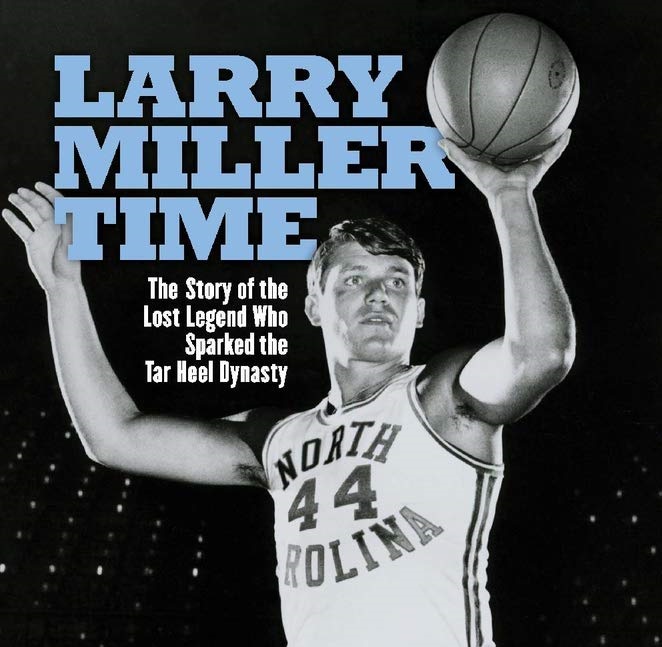Since 2000 North Carolina has grown from about 9.5 million people to well over 10 million, according to U.S. Census Bureau estimates. Most of that growth is in our urban areas while many rural areas and small towns are losing people. These facts would not please the late Reynolds Price, the great writer and Duke professor, who died in 2010. He loved our small towns.
Shortly before he died, he explained in “Ardent Spirits” that when he was a Rhodes Scholar in England and in his early teaching years at Duke, he reached back to his growing-up years in Macon, a town in rural Warren County. His experiences there helped him define who he was and gave him the setting for his first and best-known novel, “A Long and Happy Life,” published in 1962.
Price got me thinking about the importance of small towns back in 1989 when he gave a talk about the importance of memories to good writing. Memories, he said, develop alongside the connections of extended families and stable surrounding communities.
He brought home his point by saying, “That couldn’t happen if you moved every three years.”
Here is what I wrote in response:
Our memories are our treasures. They are who we are. Looking backwards, some of us see our parents, brothers, sisters, grandparents, cousins, longtime friends, teachers, preachers, and the places we knew them–home, church, school, stores, and fields. Those people and places of growing up define us. They are our anchors, our foundations, our roots. At least they are, if we have those memories–if we remember where we grew up.
But fewer and fewer of us know where we are from. The average American moves every three years. You can’t let your roots grow too deep if you move that often.
If you move every three years and live in a new neighborhood where everyone else is new, Price said, you are not going to have the same kind of memories as those who grew up in one place.
Does it make a difference? I think it does. I can’t prove it, but look around at the people who are making a difference in North Carolina–the best business leaders, our best political leaders, our best teachers and writers.
Don’t a disproportionate number of them come from small towns and farms?
What explains their success in the development of leaders for the rest of us?
Some big city snobs would say that these leaders have had to overcome their culturally deprived backgrounds. Look at the small towns, they say, and see nothing happening, backward schools, no theaters, no big libraries, no big-time sports.
Nothing there? Nothing but the stable nurturing that creates the self- defining memories that Reynolds Price talked about.
North Carolina’s small towns and rural communities are the state’s “people estuaries.”
Estuaries are those protected brackish waters along our coast, which, with the marshes, swamps, and backwaters, are the most efficient producers of food in the state. They are a critical link in our food chain. We often think of those areas as underdeveloped swamps. But they are irreplaceable treasures where the richness and stability of life makes for one of the earth’s most productive ecosystems.
Reynolds Price was right. Those nurturing memories that the small towns make possible are important in giving people a sense of who they are. People who have a sense of who they are become better equipped to lead, which may explain why small towns are so successful in producing so many North Carolina leaders.
These small towns are our “people estuaries.”
D.G. Martin hosts “North Carolina Bookwatch,” which airs Sundays at noon and Thursdays at 5 p.m. on UNC-TV. Preview the upcoming program on Preview the upcoming program on UNC-TV’s North Carolina digital channel (Time Warner #1276) on Fridays at 8 p.m. This Thursday’s (March 9) guest is the late John Hope Franklin, author of “Mirror to America.” Next week’s (March 16) guest is Charles Frazier, author of “Thirteen Moons.”
To view prior programs: http://video.unctv.org/program/nc-bookwatch/episodes/
For upcoming programs: www.unctv.org/ncbookwatch
Thursday 5pm March 9 John Hope Franklin author of “Mirror to America”
Thursday 5pm March 16 Charles Frazier author of “Thirteen Moons”
Thursday 5pm March 23 Pat Conroy author of “The Death of Santini”
Sunday noon March 26 and Thursday 5pm March 30 Ralph Hardy, author of “Argos”
Sunday noon April 2 and Thursday 5pm April 6 Renee Ahdieh, author of “The Rose & The Dagger”
Related Stories
‹

One on One: John Rosenthal Asks, Why?Why? Why? Why? This question haunts anyone who has lost a family member or friend to suicide. We deal with the question of what could we have done and wonder why it had to happen? North Carolina’s famed photographer John Rosenthal faced these questions in 1965 when his friend, a former girlfriend, Amylu Danzer, took […]

One on One: Deciding Who Leads A UniversityWho runs the university? What university are you asking about? Well, for example, Fayetteville State University, one of the 17 institutions that are part of the University of North Carolina, now known as the UNC System. Clearly, the recently appointed chancellor of FSU, Darrell Allison is the leader of that institution. But others share his […]
![]()
One on One: When Do We Change Names and History?Last week the Raleigh City Council removed the historic designation of Wakestone, the former home of Josephus Daniels. That action is just one more reminder of North Carolina’s and the nation’s struggle to find agreement on what people should be honored and what versions of history should be taught in our schools. The unanimous action […]

One on One: John Hart’s Grim ReturnJohn Hart can flat-out write,” says bestselling author David Baldacci. Hart proves it again with his latest, “The Unwilling,” 150,000 copies of which have been printed to be ready for release this week. It’s been almost 15 years since former North Carolina lawyer John Hart hit the big […]
![]()
One on One: Three New North Carolina-Connected CongresswomenThree North Carolina-connected women Democrats broke the mold in the recent congressional elections. The “mold” was Democrats losing congressional seats to Republicans. These three women won seats that were previously held by Republican men. All three are the sorts of smart, experienced, hard-working people who have the potential to be leaders in Congress. All three […]

One on One: Another InoculationWe got inoculated last week. Or, I think we did. I hope we did. I am not thinking about the COVID vaccine that some got recently and others, I hope, will be getting soon. Nor am I thinking about flu shots or measles. I bet you remember the smallpox vaccine that many of us got […]

One on One: The College Sports We Want To SaveIs the U.S. Supreme Court going to put college athletics out of business? Last week it agreed to decide whether the NCAA’s limits on compensating college athletes violate antitrust laws. Or is it the NCAA that is changing important sports traditions by loosening to the point of elimination its rules limiting transfers of college athletes […]
![]()
One on One: Jim Crow Is Still Alive in North CarolinaUnbelievable when you think about it, how North Carolina maintained its segregated and discriminatory racial system for such a long time. The remnants of what is commonly called “Jim Crow” are still with us, a daily reminder of the horrors of the past. A new book, “Jim Crow in North Carolina: The Legislative Program from […]

One on One: Books for Holiday GivingIf you are worried about holiday gifts or selections for your book club’s reading, here are some good North Carolina-connected books to consider. Three beloved North Carolina authors have new books that would be perfect for fiction fans: Allan Gurganus, author of “The Oldest Confederate Widow Tells All,” gives us a crop of his best […]

One on One: Greek and Hebrew Guides to Our Political DifferencesHow can ancient Greek and Hebrew thinking help us understand why our friends who support other political candidates see things so differently from us? Why are we locked into such different positions? It is dangerous for anyone to try to explain why people support opposing political figures or different political parties or programs. We sometimes […]
›








